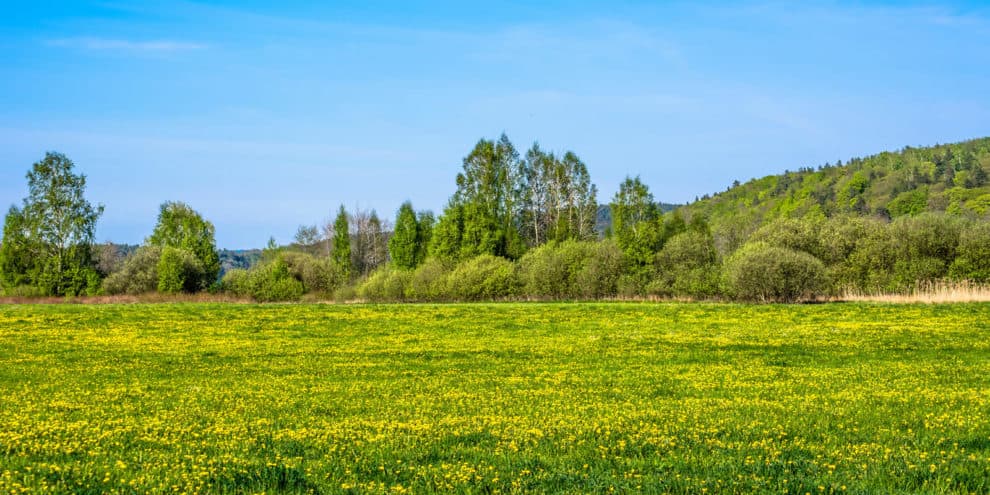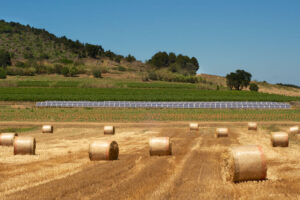Landownership means owning more than “just land”; it means owning a “bundle” of rights associated with a particular property. In this economic climate many people are considering making an investment in rural land or are looking for ways to justify purchasing a recreational tract.
I always recommend having an exit strategy when buying land in the event that you need to sell your property in the future. It is also wise to evaluate what potential sources of income your prospective purchase can generate. If you were to split off pieces of your ownership bundle and lease or sell them, you could generate income and help with the carrying costs associated with your land. Here are some ideas about the pieces of your bundle of rights that can be sold or leased.
1. Hunting rights – Big game, deer, turkeys, dove, squirrel, you name it, someone hunts it. In Alabama owners are leasing their land to hunters for $6 to $17 per acre.
2. Timber – Timber can be thinned, harvested, or leased. One great thing about a timber investment is that it has the potential to generate some income with some frequency depending on the site index, species, and age of timber.
3. Mineral and Gas rights – This can be a boon for a landowner if the lessee finds something of value. Exploration companies will often pay an up-front fee per acre for 5 to 10 years for the right to retrieve minerals or gas from your land. Royalties are paid to the owner if extraction is undertaken.
Desirable minerals and gases would include: oil, natural gas, coal, coal-bed methane, chalk, clay, gravel, chert, river rocks, iron, gold, silver, fill-dirt, and numerous others.
4. Conservation Easements- Wetland mitigation, native forests and grasslands, and many other options are available to consider placing your property into a conservation easement for tax benefits
5. Renewable Energy Potential – Solar, mini-hydroelectric generation, wind, and geothermal
6. Cellular phone tower, radio tower, electric utilities, and natural gas transmission lines – These entities pay to lease a portion of your land to further their corporate mission. Payments range from monthly to once every 40 or 50 years.
7. Carbon Sequestration Offsets
8. Cropland, Pasture, Livestock Grazing land – Cash rents in Alabama range from $25/acre for hay cutting to $90/acre for agricultural cropland
9. Fishing
10. Renting out your lodge or hunting cabin
11. ATV, horseback, bicycle trail riding, and hiking
12. Mud bogging and off-road competitions
13. Landing Strip
14. Water rights from wells, streams, or rivers
15. Billboards and advertisements
16. Birding and wildlife observation
17. Caves, waterfalls, or other natural formations that are of public interest
18. Weekend flea market
19. Boarding Horses or other animals
The preceding list was meant to jumpstart your thoughts about the potential of leasing some of the rights associated with your property. It is by no means exhaustive, but my aim is to show that there are ways to help generate some income from your tract.
Thinking creatively and looking for opportunities can pay significant dividends. I heard of a landowner in Alabama near a car manufacturer that was approached about leasing some of his land to the manufacturer for them to park some of their excess inventory for a few months while they waited on vehicle sales to pick up.
Be sure to weigh all of your income-producing options when evaluating a prospective purchase. This is one way an experienced land agent can assist you by providing information about potential revenue sources. You just might find that purchasing a rural property now is a reasonable and justifiable investment.
This content may not be used or reproduced in any manner whatsoever, in part or in whole, without written permission of LANDTHINK. Use of this content without permission is a violation of federal copyright law. The articles, posts, comments, opinions and information provided by LANDTHINK are for informational and research purposes only and DOES NOT substitute or coincide with the advice of an attorney, accountant, real estate broker or any other licensed real estate professional. LANDTHINK strongly advises visitors and readers to seek their own professional guidance and advice related to buying, investing in or selling real estate.










There has been a lot of controversy over natural gas leases ruining water quality in the Northeast.. just an fyi for those considering.
We had a lengthy conversation today with a gentleman looking for property for a small lake in New York. He was surprised how many additional uses and values the water will bring to the property he is seeking.
I agree that having an exit strategy is a good idea; even those folks who plan to keep their land for a long time may find themselves in a situation that requires a need to sell. In an effort to mitigate this, a responsible approach to finding streams of income is critical. Your list is interesting and has some good ideas. However, buyers must also keep in mind how those “streams of income” might impact an exit strategy and, as you know, what regs. are on the books that may limit such endevours. Buyers should be cognizant that short-term income may adversely impact the quality of their land. In my area (Vermont) 2, 4, 5 and 8 are the first usual suspects to explore. The jury seems to be out on the carbon sequestration option.
Thanks
Kurt, thanks for the input. I agree that not every option would work for every owner. Deciding which rights from your bundle to sever or encumber is a big deal and definitely impacts the future sale of your land. My aim here is specifically to help owners get creative with what the could do. Options are the key to making this work. Thanks again.